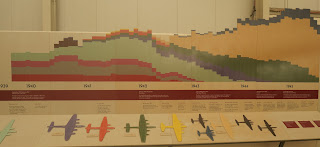Eighty year ago this week, RAF Bomber Command finally begins to carry out the mission it set itself in 1938 and visionarily-led special forces counter-balance conventional military failure in Burma
RAF Bomber Command mounted its largest raid of the war by weight of bombs, dropping 2,000 tons on the city of Dortmund as the campaign that came to be called the Battle of the Ruhr got under way. Its previous record was 1,500 tons a few weeks before. The Command's destructive power had grown because the 1938 Scheme M programme of migrating to an entirely heavy bomber force was finally becoming a reality. Twin-engine Vickers Wellingtons still featured largely in its arsenal, but four-engined Lancasters and Halifaxes were taking over.
The first Chindit operation, Operation Longcloth, behind Japanese lines in Burma was announced publicly. The tale of bravery and inventiveness served as a counterweight to the embarrassing news of the failure of the Arakan offensive. Militarily it achieved almost nothing against the Japanese and only half of the 3,000 troops committed had survived in fit state for future combat. The Chindits and their visionary commander, Orde Wingate, fitted Churchill's predilection for special forces.
Churchill was accorded the honour of addressing both houses of Congress in Washington. This appeared to mark a high point in the Anglo-US alliance but behind the prime minister's back the President was proposing a purely bilateral meeting with Stalin. Britain was drifting towards junior partnership in the post-war world order. Stalin played up and announced the dissolution of Comintern, the organisation charged with spreading socialist revolution worldwide in a wholly spurious gesture of abandoning the Soviet Union's international ambitions.



Comments
Post a Comment